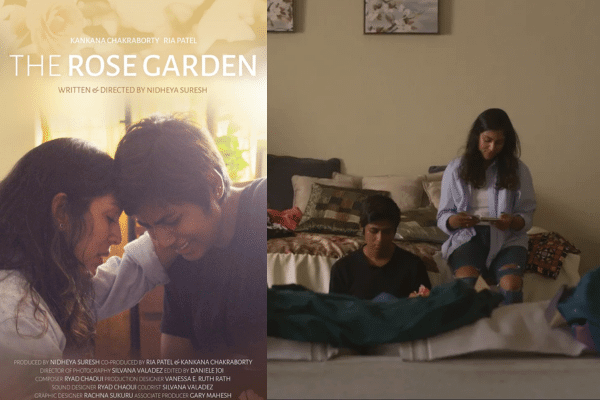How long does it take to rebuild family bonds that have ruptured? Nidhya Suresh’s ‘The Rose Garden’ explores this question in the form of a simple but resonant two-hander short film.
The film follows Lisa and Damini, two estranged Indian-American sisters, who are thrust together when their parents die in a tragic accident. The sisters, played by Ria Patel and Kankana Chakraborty, are forced to confront their grief and reconcile the emotional rift in their relationship.
Despite the tight runtime, ‘The Rose Garden’ achieves an absorbing and affecting narrative, owing to deep characterisation and clean cinematography, leaving you enough space to grieve and breathe with the characters. The turbulent sisterly dynamic is accurately rendered and portrayed with synergy by the two leads, the characters skilfully moving from hurling death threats to comforting each other.
The film’s cathartic ending left a strong impression on the mostly young, second generation South Asian Australian audience at its’ Melbourne screening, and a guided meditation from Ria Patel left them grounded and well placed for a panel discussion on South Asian mental health.
View this post on Instagram
InSession’s Sanduni Silva provided valuable insight into the reality of working as a South Asian psychologist, while Jagesh Panchal, founder of Shakti Mental Health reflected on his own journey to find culturally resonant mental health resources and the necessity of diverse practitioners.
Rumali Kularatne, Community Manager of the Australian South Asian Centre, spoke on her community building work and shifting the stigma of mental health in the South Asian community, and Ria Patel discussed the journey of working on ‘The Rose Garden’, delving into her process of characterising difficult emotions.
Though a blind spot in the room was an awareness towards the way mental illness and isolation can be equally debilitating for older South Asians, the evening certainly generated thoughtful conversations and emphasised the need for intergenerational and culturally responsive mental health interventions. It was an encouraging space to connect with community and normalise reaching out for support.
READ MORE: Girls Will Be Girls : IFFM bows out with defiant coming-of-age film





